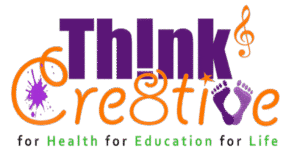Organisation: Think Cre8tive Group CIC
Date Adopted: 1 October 2025
Review Date: 1 October 2026
Responsible Officer: CEO / Board of Directors
1. Policy Statement
Think Cre8tive Group CIC is committed to creating, protecting, and sharing high-quality creative health programmes and resources. We recognise the value of our intellectual property (IP), including training materials, toolkits, branding, and digital resources, and will manage these responsibly through fair licensing arrangements that balance accessibility with sustainability.
2. Purpose
The purpose of this policy is to:
- Protect the organisation’s intellectual property rights.
- Provide clarity on how resources and toolkits can be used by partners, licensees, and third parties.
- Ensure licensing arrangements are consistent, fair, and aligned with organisational values.
- Generate sustainable income to reinvest in community benefit.
3. Scope
This policy applies to:
- All training materials, toolkits, handbooks, videos, and digital resources created by Think Cre8tive Group CIC.
- Programme names, logos, and branding (e.g. Singing Club, Sing It Out Mama, Uke-Can-Play Ukulele).
- Licensed delivery models for community, NHS, charity, and commercial use.
- Partnerships, affiliations, and collaborations involving branded resources.
4. Intellectual Property Rights
- All content, materials, and programme names developed by Think Cre8tive Group CIC remain the intellectual property of the organisation unless explicitly transferred by contract.
- Logos, branding, and trademarks must not be altered, replicated, or used without permission.
- Any unauthorised use of materials or branding may result in termination of agreements and/or legal action.
5. Licensing Principles
- Mission-aligned – Licensing agreements must align with the values and objectives of Think Cre8tive Group CIC.
- Fair & Transparent – Clear terms, pricing, and conditions apply to all licensees.
- Equitable Access – Affordable rates for charities and community groups, with scaled pricing for NHS and commercial organisations.
- Quality Assured – Licensed delivery requires adherence to quality standards, safeguarding, and evaluation frameworks.
- Non-transferable – Licences are issued to specific organisations or individuals and cannot be resold or sublicensed.
6. Types of Licensing
- Community Licence – for small grassroots or voluntary groups delivering locally.
- NHS/Health Licence – for NHS Trusts, social prescribing providers, or allied health partners.
- Charity/Nonprofit Licence – for larger charities and regional/national delivery partners.
- Commercial Licence – for private businesses delivering services for profit.
7. Licensing Agreements
All licensees must sign a formal agreement (Memorandum of Understanding or Licence Contract), which sets out:
- Scope of permitted use (materials, branding, delivery model).
- Duration of licence.
- Payment terms (annual or project-based fees).
- Responsibilities of licensee (training, safeguarding, quality assurance, reporting).
- Responsibilities of Think Cre8tive Group CIC (training support, brand assets, evaluation tools).
- Termination and dispute resolution procedures.
8. Reporting & Compliance
- Licensees must provide quarterly or annual monitoring reports (attendance, outcomes, participant feedback).
- Think Cre8tive Group CIC reserves the right to audit delivery to ensure brand quality and safeguarding standards are maintained.
- Non-compliance may result in suspension or termination of the licence.
9. Revenue & Reinvestment
- Licensing income will be used to sustain and grow community programmes, ensuring accessibility for disadvantaged communities.
- A proportion of income may be reinvested into further training, evaluation, and development of new toolkits.
10. Roles & Responsibilities
- Board of Directors – oversight of IP and licensing arrangements.
- CEO – authorisation of all licence agreements.
- Project Leads – management of quality assurance and reporting processes.
- Licensees – responsible for delivering in line with licence conditions.
11. Review
This policy will be reviewed annually to ensure it reflects legal requirements, best practice, and organisational priorities.
